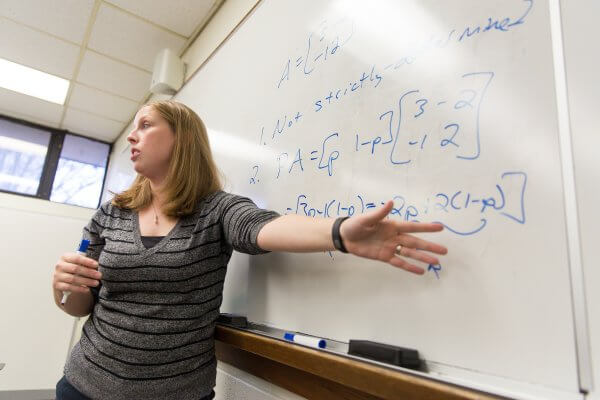About Us
Mathematics is at the heart of higher education.
The mathematical sciences are sometimes considered a human endeavor in which people create mathematical structures to investigate. Other times, they are considered a science focusing on theorems and ideas that people discover, much the same way that we investigate the world around us. And still at other times, the mathematical sciences are developed as tools for use in other disciplines.
Whichever view you take, these three perspectives put mathematics and its related disciplines at the intersection of three major parts of a university: arts and humanities, natural sciences, and professional studies.
A Flexible Program in a Versatile Discipline
Valparaiso University’s mathematics and statistics department takes the central role of the mathematical sciences seriously. Mathematics and statistics curricula are designed to provide students with the maximum flexibility to integrate their mathematical studies with other programs; we routinely graduate students with double majors in fields as diverse as music, meteorology, and mechanical engineering as well as those who pursue graduate study in mathematics. The academic programs we offer allow students to focus on any of these areas:
- Actuarial science (a separate B.S. major)
- Data science (a separate B.S. major)
- Statistics (a separate B.A. or B.S. major)
- Operations research
- Scientific mathematics
- Secondary education
- Preparation for graduate school in mathematics
Mentoring and Advising
The department’s strong academic advising program guides students who have many different interests and goals. Through frequent conversations with their official advisor and other faculty in the department, students are assisted in the process of identifying a vocation. They are provided information about many career paths, encouraged to explore all of their options, given shortcuts through bureaucracy, and offered candid assessments of their progress towards their life and academic goals.
Every time I learned something in MATH 421, I immediately started seeing it everywhere I looked in the world.
– Owen Prough ’12, Software developer, Epic Systems
